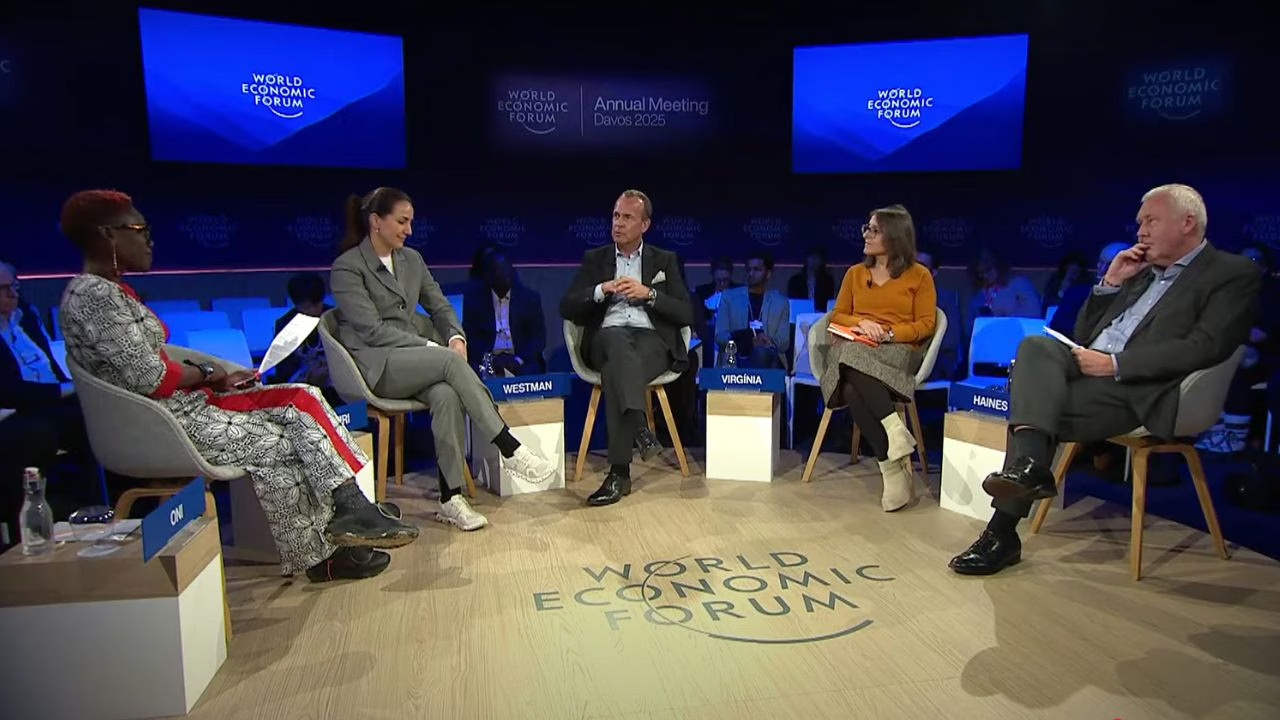The World Economic Forum Annual Meeting 2025 brought together global leaders, experts, and policymakers to discuss one of the most pressing issues of our time: food systems. The session titled “Breaking Down Food” provided deep insights into the complexities of food security, nutrition, sustainability, and the urgent need for innovation.
The Importance of Food Systems
Food is at the heart of human health, economic stability, and environmental sustainability. Diet-related diseases claim nearly 11 million lives annually, and food insecurity continues to impact billions. The global food system sits at the intersection of climate change, social inequality, and economic growth, making it a critical area for transformation.
During the session, Minister Chad Paswan, India’s Minister for Food Processing Industries, highlighted the growing challenges of malnutrition, with nearly 2.8 billion people unable to afford a nutritious diet. By 2030, projections indicate that 600 million people will still be undernourished. The paradox of food systems—where obesity and malnutrition coexist—emphasizes the urgency of reforming food production, distribution, and consumption.
The RISE Framework: A Roadmap for Change
To address these challenges, the session introduced the RISE Framework, a structured approach to creating resilient and sustainable food systems:
- R – Resilient Food Systems: Strengthening the ability to withstand crises like pandemics, conflicts, and climate disasters.
- I – Inclusive Livelihoods: Supporting smallholder farmers and marginalized communities with equitable opportunities.
- S – Sustainable Production and Consumption: Promoting nature-positive agriculture, healthy diets, and food waste reduction.
- E – Equitable Access to Nutrition: Ensuring affordable, nutritious food for all, fostering better health and economic prosperity.
India serves as a prime example of agricultural transformation. From the Green Revolution to advancements in millets and ayurvedic nutrition, the country is at the forefront of sustainable food innovations. With initiatives like Aayurveda Ahar, India is leveraging its rich traditions to combat malnutrition and lifestyle diseases.
Innovation and Policy: The Pillars of Food Security
The conversation also highlighted the importance of technological advancements and policy changes in shaping the future of food systems:
- UAE’s AI-Powered Agriculture Initiative: The UAE, in collaboration with the Gates Foundation, is investing $200 million in AI-driven agricultural research. Their “ChatGPT for Agriculture” (ChAG) aims to provide smallholder farmers with real-time advisory services to improve productivity and sustainability.
- Global Food Corridors: Strategic partnerships between countries, such as the UAE-India food corridor, are fostering better trade, resource-sharing, and sustainable agricultural practices.
- Nutrition Security vs. Food Security: Her Excellency Mariam Almeri from the UAE emphasized the shift from food security to nutrition security, ensuring not just food availability but also its quality and nutritional value.
Industry and Retail: The Role of Businesses in Food Transformation
Johan Westman, CEO of AAK, stressed the role of food producers and ingredient suppliers in making nutritious food both accessible and affordable. Industry players must prioritize innovation that enhances food quality without compromising affordability.
Retailers like Geronimo Martins have taken the lead in reformulating private-label products, gradually reducing sugar, salt, and unhealthy fats while maintaining taste and affordability. Their commitment to “silent reformulation” ensures that consumers unknowingly transition to healthier diets without resistance.
Scaling Sustainable Food Solutions
David John Haynes, CEO of Flora Food Group, pointed out that food innovation must reach every corner of the globe, including developing markets. Brands must ensure their products are both nutritious and affordable to cater to all income groups.
Final Thoughts: Food as Medicine
A powerful takeaway from the session was the notion of “food as medicine.” Just as governments rapidly scaled up vaccine distribution during the COVID-19 pandemic, there must be a similar urgency in ensuring access to healthy food. Investing in sustainable food systems is not just about feeding the world—it is about nourishing people for better health and a resilient future.
As we move forward, the collaboration between governments, industries, and communities will be key to breaking down barriers to food security and building a world where nutritious, sustainable food is accessible to all.
What steps do you think are necessary to revolutionize our food systems? Share your thoughts in the comments below!


Leave a Reply